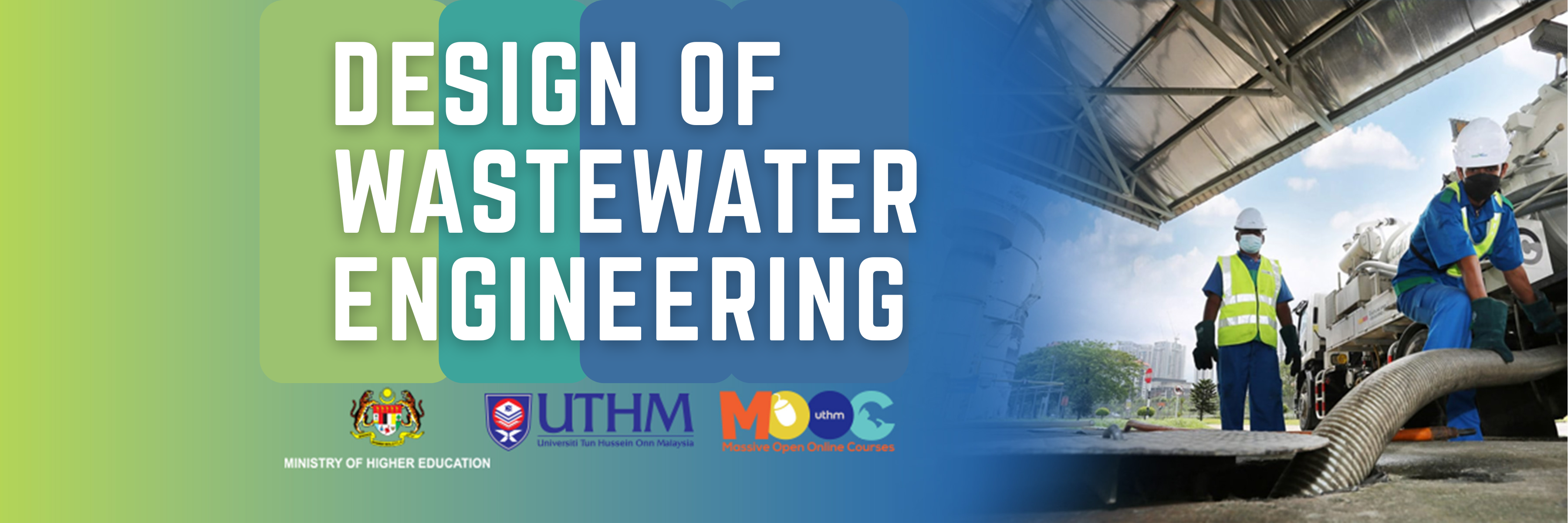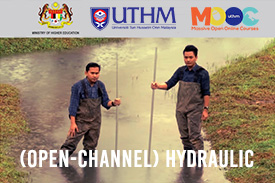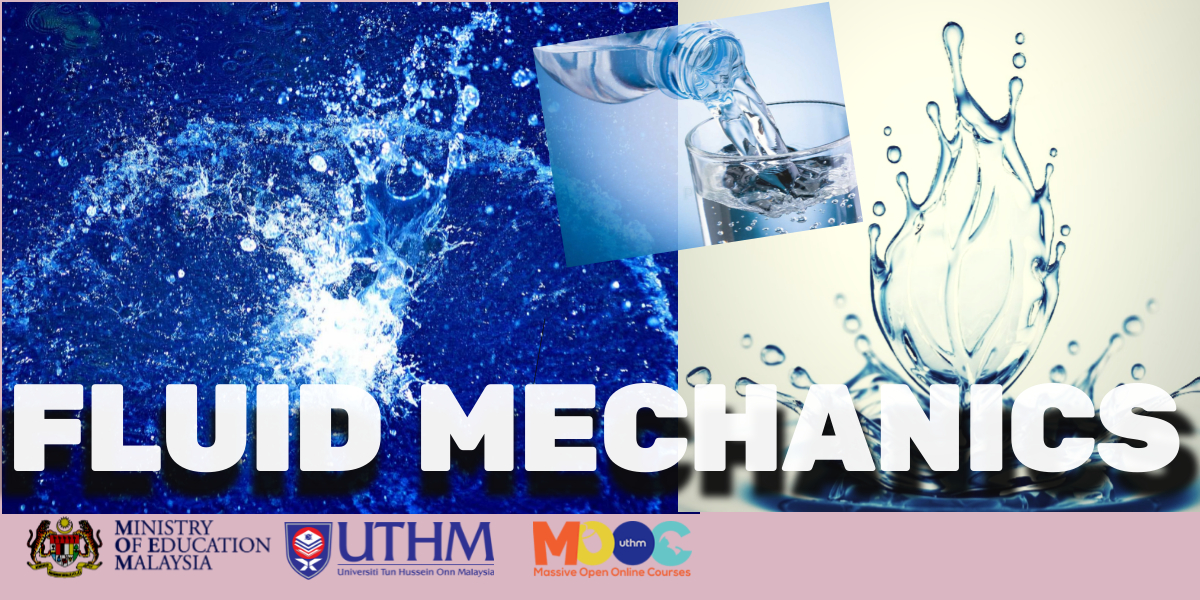
Design of wastewater engineering course encompasses the analysis and development of systems and technologies for sustainable wastewater treatment. This course provides students with the knowledge and understanding required for planning, designing, and operating wastewater treatment facilities. The curriculum covers wastewater characteristics, the fundamental design of preliminary and primary treatment units, secondary treatments (including aerobic and anaerobic biological processes with suspended and attached growth), disinfection, sludge disposal and reuse, and advanced wastewater treatment systems.
- Teacher: Nur Adila Ab. Aziz
Engineers work to develop economic and safe solutions to practical problems, by
applying mathematics, scientific knowledge and ingenuity while considering technical
constraints. In addition, engineers also play with technical data that need to be analysed
and justified using scientific methods. This course covers a review on descriptive
statistics, random variables and probability distributions, special probability
distributions, sampling and estimation theory, significance testing, Chi-square and
distribution-free tests, linear regression and correlation and analysis of variance
(ANOVA).
- Teacher: Nur Ain Ebas

Environmental Engineering (Diploma | DAC12203) by Dr Noorul Hudai Abdullah.
- Teacher: noorul hudai abdullah


TRAFFIC ENGINEERING AND SAFETY
Traffic Engineering is a branch of civil engineering dealing with the design, operation, and management of transportation facilities. Traffic operations and management are vital in traffic engineering so users move smoothly and efficiently on the facilities. Hence, this course will provide essential engineering knowledge in traffic engineering, which covers the fundamentals required for practitioners at the industry's entry level. This course introduces students to traffic engineering applications as part of civil engineering design and construction to accommodate future traffic demand. The scope of the course includes the importance of traffic engineering, traffic flow elements, highway capacity analysis, traffic management and control, traffic safety, road safety audits, and intersection design.

Contact Information:
Assoc. Prof. Ts. Dr. Kamarudin Bin Ambak
kamardin@uthm.edu.my
074564379
- Teacher: Kamarudin Ambak


Synopsis - Water from beneath the ground has been exploited for domestic use, livestock and irrigation since the earliest times. Successful methods of bringing the water to the surface have been developed and groundwater use has grown consistently ever since. This course introduces students to the functions and terminology requisite to the study of groundwater engineering. Scope of study includes Introduction to Groundwater Engineering: history and hydrologic cycle, groundwater utilization in Malaysia, groundwater table, zone of aeration and saturation and types of aquifer. Groundwater Subsurface Investigation: investigation geophysics surveys- resistivity, seismic, open channel, existing well, water table identification, leveling groundwater measurement, water table monitoring, surface and subsurface interactions. Movement of Groundwater and Flow: basic concept of Darcy’s Law, groundwater characteristics, dimension and direction flow, groundwater flow and parameters, discharge and recharge and unsteady groundwater flow. Groundwater Hydraulics and Well: bore log and well, shallow and deep well construction, pumping test and methods of analysis, well and aquifer identification, water quantity effects, steady radial flow into a well and unsteady radial flow of aquifers. Groundwater Contamination: contamination and its distribution, major sources of pollutants, assessment of contamination potential, influence of soil characteristics and monitoring groundwater quality. Groundwater Protection and Management: concept of basin management, water balance, data collection and field works, groundwater protection, techniques of groundwater model and soil remediation to protect groundwater quality.
Basic principles of fluid mechanics help engineers to study and analyze all sorts of fluid-related problems, ranging from statics and dynamics of fluid to flow in pipe networks. This course introduces students to the principles of fluid mechanics and application of the concept to typical civil engineering problems including flow in pipes, fluid measurement, and computation of fluid forces.
- Teacher: Noor Aliza Ahmad
- Teacher: Zarina Md Ali

Goals
The student should know how to apply theories of hydraulics, methods and application of hydraulic designs either experimentally or in actual situation.
Learning Outcomes
In Civil Engineering Hydraulics, the understanding of fluid properties and behavior in different civil engineering applications, such as flow of water through canals for irrigation, hydraulic structure and the application of pump and turbine are of importance. This course introduces students to the application of principles of fluid mechanics in civil, water and environmental engineering, especially hydraulic structures such as channel and weir. Scopes of study include introduction to open channel flow, uniform and non-uniform flows in open channel, specific energy and control section, and hydraulic structures and machinery.
Upon completion of the course, students will be able to:
1. Analyze the concept of uniform and non-uniform flows in open channel, hydraulic structure and machinery (C4, PLO4).
2. Discuss technically the given open channel hydraulics problems (P3, PLO2).
3. Respond in group effectively in solving uniform and non-uniform flows problems (A3, PLO5).
- Teacher: Idris Idris
- Teacher: global admin myhemmy

